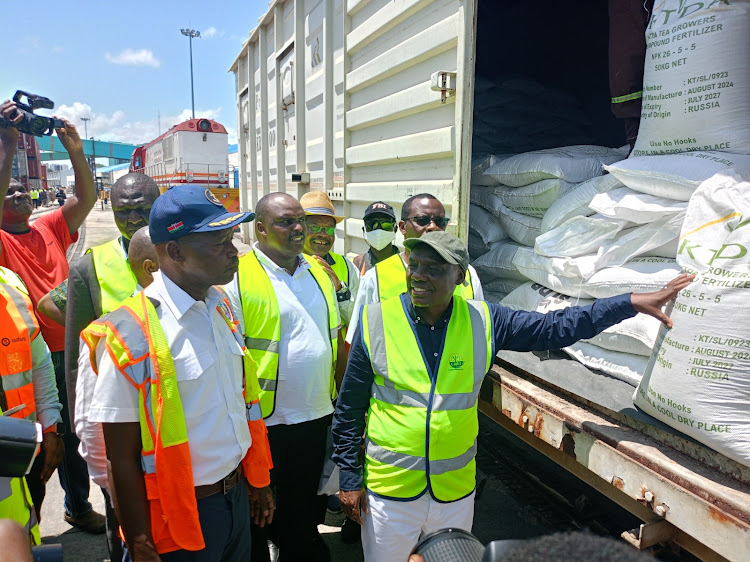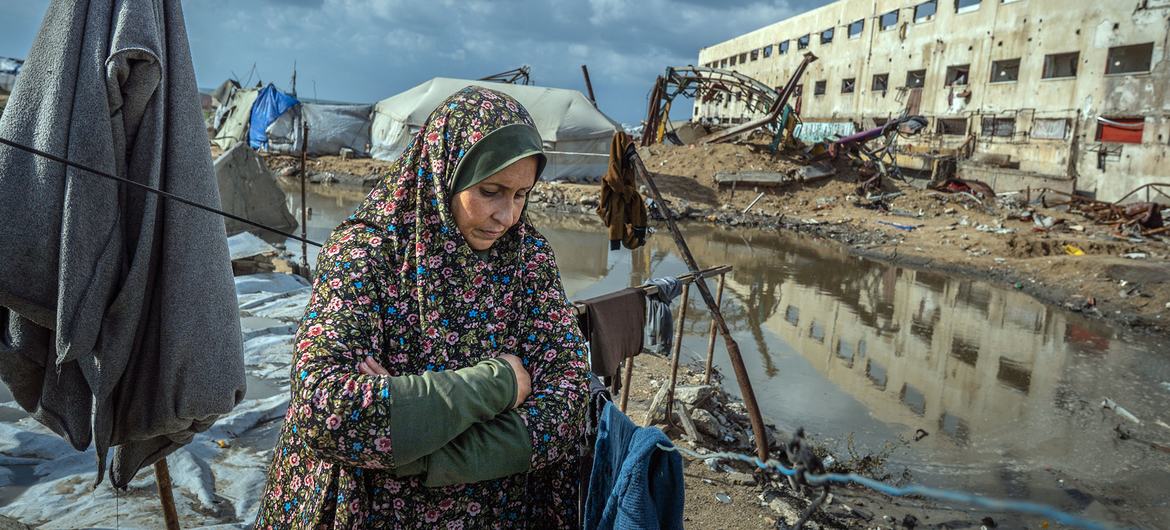Kenya requires additional Sh20 billion to meet fertiliser demand

The funds are needed to ensure affordable fertiliser is available for the short and long rainy seasons, with the ministry targeting 7.2 million bags for the 2025 long rainy season.
The subsidised fertiliser programme for the 2024/2025 financial year requires an additional Sh20 billion to meet the demand for 12 million bags, according to outgoing Agriculture Cabinet Secretary Andrew Karanja.
The funds, he said, are needed to ensure affordable fertiliser is available for the short and long rainy seasons, with the ministry targeting 7.2 million bags for the 2025 long rainy season.
More To Read
- Ruto hails agricultural reforms, cites registration of seven million farmers in digital drive
- World Bank warns soaring fertiliser prices could drive up Kenya’s food production costs
- Relief for tea farmers as subsidised fertiliser arrives at Mombasa Port after months of delay
- New government initiative offers climate insurance to 250,000 Kenyan farmers
- Small-scale farmers get Sh10.2 billion boost as state prioritises agricultural transformation
- Increased awareness of fertiliser subsidy programme fuelling demand, CS Kagwe says
Speaking at the National Cereals and Produce Board (NCPB) headquarters in Nairobi, Karanja said the funding need had risen due to increased demand.
While the short rainy season has been addressed, he noted that preparations are now underway for the next planting season.
“We need Sh20 billion to ensure we deliver 12 million bags during the 2024/2025 financial year. We are in discussions with the National Treasury,” Karanja said during the flagging off of 4.9 million bags of fertiliser.
He added that the subsidised fertiliser will be distributed to farmers by January 2025.
President William Ruto has lauded the initiative for boosting maize production, which this year reached 74 million bags of 50 kilograms each. Karanja noted that, including stock already held, the total now stands at 94 million bags.
“Because of the fertiliser subsidy programme and favourable weather conditions, farmers are now harvesting up to 45 bags per acre,” he added.
Labour concerns
The programme, launched early last year, enables farmers to purchase a 50-kilogram bag of fertiliser for Sh2,500. The government has replaced 90-kilogram bags with 50-kilogram packages to address labour concerns.
Despite budgeting Sh9 billion for the 2025 long rainy season, the ministry received only Sh7.5 billion. Karanja said discussions with the National Treasury are ongoing to secure the remaining funds.
To ensure the quality of fertiliser, Karanja highlighted measures to prevent counterfeit products from entering the supply chain. He cited lessons from 2023 when fake fertiliser was distributed under a previous administration.
He said a multi-agency task force, comprising officials from the Agriculture Ministry, NCPB, Kenya Bureau of Standards (KEBS), national intelligence, and other quality assurance bodies, has been established to inspect all fertiliser received by NCPB.
He emphasised that products are accepted only after certification confirms they meet quality standards.
“This team ensures that no counterfeit fertiliser is distributed. It also monitors transportation from NCPB warehouses to county distribution points in partnership with county governments,” Karanja said.
NCPB Managing Director Samuel Karogo said the fertiliser distributed includes both locally produced and imported products, tailored to specific soil and crop requirements. Manufacturers have been urged to ensure the inputs meet quality standards.
In addition to NCPB warehouses, the government has partnered with cooperatives and agricultural supply stores to increase accessibility.
Karanja said only registered farmers, who present an e-voucher message, are eligible for the subsidised fertiliser.
Approximately 7,600 agro-vets will assist in the distribution process, reducing transportation costs for farmers.
“Farmers have been complaining about travelling long distances to access fertiliser, and we are addressing this concern,” Karanja said.
Suppliers have until January 15 to deliver the fertiliser to farmers, ensuring the programme stays on track for the upcoming planting season.
Top Stories Today













































